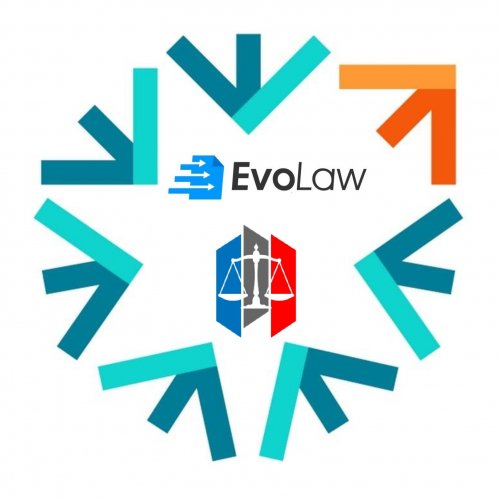Best Private Equity Lawyers in El Salvador
Share your needs with us, get contacted by law firms.
Free. Takes 2 min.
Or refine your search by selecting a city:
List of the best lawyers in El Salvador
About Private Equity Law in El Salvador
Private Equity in El Salvador is an emerging field within the financial and legal sectors. Private equity generally refers to investments made in private companies or ventures not listed on the public stock exchange, often involving buyouts, venture capital, and funding for business expansion or restructuring. In El Salvador, while the private equity market is still developing, it has gained traction due to increased interest from both local and international investors seeking opportunities in the country's growing sectors such as technology, finance, agriculture, and infrastructure. As a result, the need for specialized legal advice in private equity transactions is more important than ever.
Why You May Need a Lawyer
Entering into private equity investments, whether as an investor, fund manager, entrepreneur, or business owner, can be complex and carries various legal implications. Common situations where legal help is essential include:
- Structuring and forming a private equity fund
- Conducting due diligence on potential investments or partners
- Drafting and negotiating investor agreements and contracts
- Ensuring regulatory compliance with national and, in some cases, international laws
- Managing intellectual property rights within portfolio companies
- Navigating tax implications and structuring for efficiency
- Addressing disputes between investors, partners, or shareholders
- Handling mergers, acquisitions, or exits from private equity transactions
A specialized lawyer can help minimize risks, protect your interests, and navigate the regulatory landscape efficiently during any stage of a private equity transaction.
Local Laws Overview
The regulatory landscape for private equity in El Salvador involves several key aspects provided by local Commercial, Corporate, and Securities laws:
- Corporate Structure - Private equity investments usually take place through corporations or limited liability companies. Understanding the legal requirements for establishing and managing these entities under Salvadoran law is essential.
- Contract Law - Core agreements such as shareholder agreements, investment contracts, and partnership documents must conform to local contract regulations to be legally enforceable.
- Foreign Investment Regulations - Laws exist to promote and control foreign investment, including protections and requirements for foreign stakeholders participating in private equity deals.
- Securities Regulation - While El Salvador’s securities market is less developed than some larger economies, compliance with the Superintendencia del Sistema Financiero (SSF) and other financial authorities is required for certain transactions, especially involving public offerings.
- Taxation - Both companies and investors must comply with local tax obligations, including corporate tax, income tax, and dividend withholding. Tax efficiency planning is frequently a central consideration in private equity.
- Mergers and Acquisitions - The Law on Mergers and Acquisitions regulates how private equity firms can acquire or merge with Salvadoran companies, including approval processes and notification requirements.
It is important to obtain legal advice to ensure that all aspects of a transaction conform to these local regulations and to safeguard the interests of all parties involved.
Frequently Asked Questions
What is private equity and how does it operate in El Salvador?
Private equity involves investing directly into private companies or using buyouts of public companies to make them private. In El Salvador, such investments are structured through local legal entities and are subject to local corporate, investment, and tax laws.
Can foreigners participate in private equity transactions in El Salvador?
Yes, foreigners can invest in private equity deals, but they must adhere to restrictions and formalities under foreign investment laws. Legal counsel is advised to secure all necessary permits and ensure compliance.
Do I need to register a private equity fund with local authorities?
Registration requirements depend on the nature of the fund and its activities. If the fund raises capital from the public or engages in regulated financial activities, it may need to register with the Superintendencia del Sistema Financiero (SSF).
What due diligence is required for private equity investments?
Due diligence typically includes legal, financial, and operational reviews of the target company, including corporate governance, financial statements, contracts, employment matters, and compliance history.
How are private equity contracts enforced in El Salvador?
Contracts are generally enforceable if they comply with local contract law requirements. Dispute resolution can be through Salvadoran courts or, if agreed, through arbitration.
What are the main tax considerations for private equity investors?
Investors must evaluate corporate income tax, capital gains tax, and withholding taxes on dividends. The structure of the investment can help manage overall tax liabilities.
Are there restrictions on repatriating profits?
Generally, profits can be repatriated after local taxes are paid. However, certain currency controls or notification requirements may apply for large transfers, especially for foreign investors.
How are mergers and acquisitions regulated in private equity?
The Law on Mergers and Acquisitions provides a framework for deals, including notifications to authorities and, in some cases, prior approvals. Legal advice is necessary to structure such transactions correctly.
What role does the Superintendencia del Sistema Financiero (SSF) play?
The SSF is the main financial regulator and oversees some aspects of private equity, especially regarding fundraising and compliance with anti-money laundering requirements.
Is confidentiality protected in private equity transactions?
Yes, confidentiality agreements are common and can be legally enforced, provided they are clearly drafted and compliant with local law.
Additional Resources
- Superintendencia del Sistema Financiero: The main financial regulator overseeing certain investment activities.
- Ministerio de Economía: Provides guidance for business formation, foreign investment, and corporate compliance.
- Banco Central de Reserva de El Salvador: Offers regulatory information on cross-border financial transactions and currency matters.
- Salvadoran Bar Association: Can help you identify qualified private equity attorneys.
- Regional and international law firms with a Salvadoran presence: These organizations often publish useful guides and updates on private equity law.
Next Steps
If you need legal assistance regarding private equity in El Salvador, consider the following steps:
- Identify your objectives - Clearly outline your needs, whether forming a fund, conducting an investment, or resolving a legal issue.
- Gather relevant documents - Collect contracts, company records, financial statements, or any documents related to your legal concerns.
- Contact a lawyer with experience in private equity and Salvadoran business law - The right legal partner can advise on structuring, compliance, and negotiations.
- Arrange an initial consultation - Use this opportunity to discuss your case, ask questions, and assess the lawyer’s expertise.
- Stay informed - Legal developments and regulatory changes can impact your investment or business. Request updates from your legal adviser as needed.
With careful planning and expert legal support, you can safely and successfully navigate the private equity landscape in El Salvador.
Lawzana helps you find the best lawyers and law firms in El Salvador through a curated and pre-screened list of qualified legal professionals. Our platform offers rankings and detailed profiles of attorneys and law firms, allowing you to compare based on practice areas, including Private Equity, experience, and client feedback.
Each profile includes a description of the firm's areas of practice, client reviews, team members and partners, year of establishment, spoken languages, office locations, contact information, social media presence, and any published articles or resources. Most firms on our platform speak English and are experienced in both local and international legal matters.
Get a quote from top-rated law firms in El Salvador — quickly, securely, and without unnecessary hassle.
Disclaimer:
The information provided on this page is for general informational purposes only and does not constitute legal advice. While we strive to ensure the accuracy and relevance of the content, legal information may change over time, and interpretations of the law can vary. You should always consult with a qualified legal professional for advice specific to your situation.
We disclaim all liability for actions taken or not taken based on the content of this page. If you believe any information is incorrect or outdated, please contact us, and we will review and update it where appropriate.
Browse private equity law firms by city in El Salvador
Refine your search by selecting a city.














